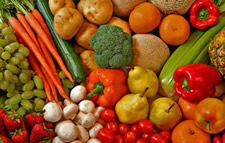Growing children need plenty of energy to perform their daily activities. An average teenager is involved in high intensity activities compared to an office goer. Activities can be low, medium, and high intensity. Study, play, exams, camps, trips, big games, tours, etc., are some of the many activities that form part of a teenager’s life through the day. He/she needs both, mental and physical strength to keep up with this routine, to remain fit and healthy.
A teenager’s diet should contain carbohydrates, proteins, minerals, vitamins, and all the essentials that their bodies need. A teenager should have more food as compared to a 45 year old. This is because teenagers have high metabolism rates. Five or six medium meals justify an average teenager’s diet pattern. A little bit of fatty food is again not a problem because the fats in the body disappear the moment they start engaging themselves in different games, trips or any other activities. In fact, teenagers should eat heavy meals, as this is their only time to build strong bodies.
The essential and healthy food items for a teenager are:
Milk - provides calcium for healthy teeth and bones. Water content in the milk keeps you hydrated.
Fruit juices - gives the teenager that little boost in stamina required while they play.
Water - an average teenager must consume at least 8-10 liters of water per day.
Meat and eggs - provides proteins, vitamins and carbohydrates. Very essential to increase weight and muscle mass. Fish helps in increasing concentration and alertness.
Fruits and vegetables - are more essential than non-vegetarian food. It is important because the minerals and vitamins are needed for the body and keeps the body hydrated. Fruits also help in learning and remembering. Dieticians recommend plenty of fruits and vegetables for growing teens. Fruits and vegetables are great to gain weight and remain fit.
All the above food items help teens in their studies and physical activities. The food cycle of an average teenager should be heavy breakfast at about seven, a fruit around 10, good lunch at about one, a fruit at about 3, and a small meal at around 5 with a fruit juice and dinner at 8. A growing teen must not eat oily or fattening foods, as this might make him/her lazy, lethargic or even build excess body fats, which are the initial stages of obesity.
If your teenager is not engaged in sports or exercises, absolutely do not follow the abovementioned foods, since with healthy eating; there should always be good exercise. Teens with low metabolism rate often put on more weight, even if they eat less. This is not correct. The idea is to eat healthy and exercise more to increase the metabolism rate and reduce the unwanted fats in the body.
Teens that are always attached to the computer or are at home should reduce the intake of meat, energy drinks, and milk, as it is not necessary for them and they might put on fats in their bodies.
To conclude, teens should stop eating junk food from outside and stick to home cooked food to stay healthy and fit.



























